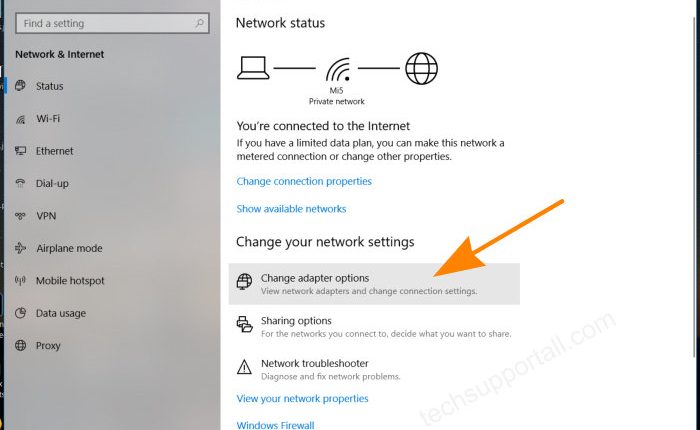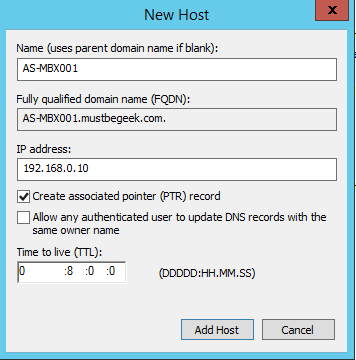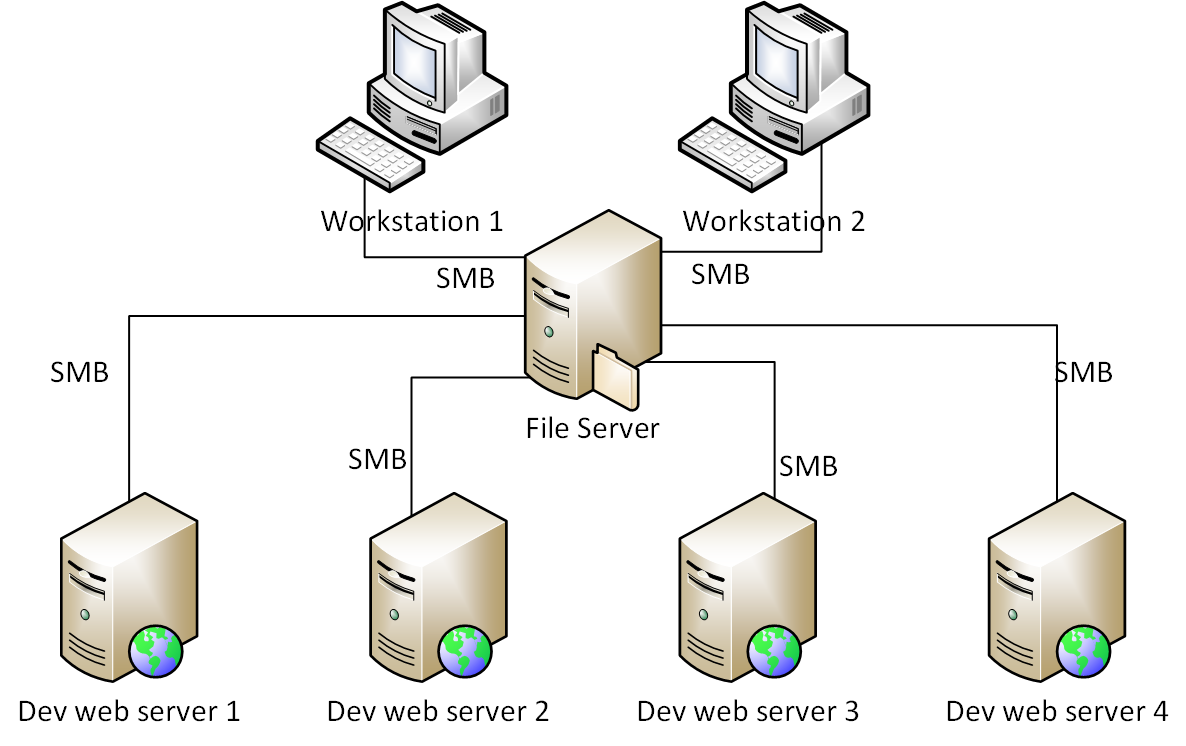
Hosts refer to a computer that offers services to other computers on the network. The host is usually a mainframe that communicates with other computers to provide services to network programs. In Internet lingo, it is also called a large server. In both cases, a host is an extremely powerful device or program that provides service to other programs or devices connected to a network.
Hosts are devices or computers that can communicate with other hosts in a network.
A host, also known as a service provider, is a computer which connects to a network to provide services to other devices. Its functions include sending and receiving applications and data. In network architecture, hosts are either physical or virtual devices. There may be routers or switches in the network.
A network is a collection or devices that connect with each other by using an Internet Protocol address. Each device has its unique IP address and software. This allows hostnames and software to be translated into IP addresses. They can then be found and communicate with other devices or networks. A network can be made up of many devices, such as hubs or switches, routers or WiFi boosters.

Servers offer services for programs connected to the Internet.
Servers can be described as computer systems that provide services for other computers or programs connected to a network. They usually run an operating system called server. This OS manages and completes all server-related tasks. These systems offer more processing power and features than regular computers.
Servers are responsible for transferring information from one computer to another, such as files and websites. They are an integral part of any information technology infrastructure. There are many different types of servers. They vary in size, shape and capabilities.
Distributed hosting can be described as a type of distributed hosting
Distributed Hosting is a form of web hosting that allows many websites to share a single server. This is an alternative to each website owner having to purchase their own server. Web hosts host their servers within data centers. Subscriber websites don't have to maintain their physical servers. Instead, users simply enter their URL into their web browser. The browser then converts it into an address and sends it off to the server. The web host owns the servers and rents them to the users who need to access their websites.
InterPlanetary file system (IPFS), now provides a new type of distributed web hosting. This protocol, which is network-based, allows users to share content within a distributed system such as a shared data base. IPFS uses content-addressing to identify each file within a global namespace.

Cloud hosting is a relatively new type of hosting.
Cloud hosting can be a type that lets you pay as little or much as you need. This type of hosting is great for websites with high traffic but require flexible pricing options. It's safer to store data on it than traditional servers, and it supports advanced monitoring and web application firewalls. It also offers more flexibility in pricing than traditional web hosting.
Cloud hosting works by disaggregating a physical machine into many virtual machines. These virtual servers connect to form one network that hosts your website. This is also known as cluster server hosting. While it's more expensive than shared hosting this type of hosting offers many benefits. For example, the architecture of cloud hosting makes it easy to anticipate sudden traffic surges, and the virtual servers are constantly loaded with traffic without overloading the physical servers. Some websites require tighter security than others. Cloud hosting offers the flexibility to address this requirement.
FAQ
Should I use WordPress or a website builder?
A small website is the best way to build a successful web presence. If you have the time and resources to build a full-blown site, then do so. If you don't have the resources to build a full-fledged site, a blog may be the best choice. As you develop your website design skills, you can always add additional features.
You should first set up your primary domain before you begin building your first website. This will allow you to point to your primary domain name when you post content.
How to design a website?
Understanding your customers' needs is the first step. What are they looking for when they visit your site?
What problem might they face if your site doesn't have what they are looking for?
Now you need to figure out how you can solve these problems. You also need to make sure that everything on your site looks right. It should be easy for users to navigate.
Your website should be well-designed. Make sure that it doesn't take too long to load. If it does take too long, people won't stay as long as they would like to. They'll go somewhere else instead.
It is essential to determine where all your products reside before you start building an eCommerce website. Do they all reside in one spot? Are they spread around your site?
It is important to decide whether you will sell only one product or multiple products at once. Are you looking to sell one product or several?
These questions will help you decide if you want to build your website.
Now it is time for you to concentrate on the technical aspect of things. How will your site operate? Is your site fast enough to be useful? Can they access it quickly via their computers?
Will they be able buy anything without having pay an extra fee? Do they need to register in order to buy anything?
These are vital questions you need to ask. When you have the answers, you can move on.
How to Make a Static Site
There are two options available to you when building your first static website.
-
Content Management System, also known as WordPress. WordPress: This software can be downloaded and installed on your computer. It can be used to create a website.
-
Creating a Static HTML Website: In this case, you'll need to write your HTML/CSS code. If you already know HTML, it is simple to do.
Consider hiring an expert to build your large website.
But starting, you should probably go with option 2.
What is Website Design Software?
Graphic artists, photographers, illustrators, and writers use website design software to create websites and other digital media.
There are two main types for website design software. Desktop apps can only be installed locally on your PC and will require additional software to run on your system. Cloud-based solutions are hosted remotely on the internet and require no additional software on your computer, making them ideal for mobile users.
Desktop Applications
Although desktop applications are more powerful than those offered by cloud-based services, they may not be necessary. Some people prefer working exclusively on a desktop app, as they find it easier. Others like to use the same tool regardless of whether they are working on a laptop or a smartphone.
Cloud-Based Solutions
Cloud-based services are the best choice for web developers who want to save both time and money. These services allow you to edit any type of document from anywhere that has an internet connection. This means that you can work on your tablet while waiting to brew your coffee.
If you decide to go with a cloud-based service, you'll still need to purchase a license for the program. However, you won't need additional licenses when upgrading to a newer version.
If you have Photoshop, InDesign and Illustrator, these programs can be used for creating web pages.
What HTML & CSS can I use to create my website?
Yes, you can! It's possible! You need to have basic knowledge in web design and programming languages, such as HTML (Hyper Text Markup Language), CSS and Cascading Style sheets (Cascading CSS Sheets). These two languages make it possible to create websites accessible by all who have an internet connection.
Statistics
- At this point, it's important to note that just because a web trend is current, it doesn't mean it's necessarily right for you.48% of people cite design as the most important factor of a website, (websitebuilderexpert.com)
- Is your web design optimized for mobile? Over 50% of internet users browse websites using a mobile device. (wix.com)
- The average website user will read about 20% of the text on any given page, so it's crucial to entice them with an appropriate vibe. (websitebuilderexpert.com)
- In fact, according to Color Matters, a signature color can boost brand recognition by 80%. There's a lot of psychology behind people's perception of color, so it's important to understand how it's used with your industry. (websitebuilderexpert.com)
- Did you know videos can boost organic search traffic to your website by 157%? (wix.com)
External Links
How To
What is website hosting?
Website hosting refers to where people go when they visit a website. There are 2 types.
-
Shared Hosting - This is your cheapest option. Your website files are stored on a server that is owned by another person. Customers who visit your website send their requests via the Internet over to that server. You then receive the request from the owner of the server.
-
Dedicated hosting: This is the most costly option. Your website is only accessible from one server. No other websites share space on the server, so your traffic stays private.
Because shared hosting is more affordable than dedicated hosting, most businesses opt for it. You can use shared hosting if the company owns the server to provide the resources required for your website.
There are pros and disadvantages to each option. Here are some key differences between them.
Sharing Hosting Pros
-
Lower Cost
-
Easy to Set Up
-
Frequent Updates
-
It can Be Found On Many Web Hosting Companies
You can get shared hosting for as low as $10 per monthly. However, this price typically includes bandwidth. Bandwidth is how much data you can transfer to the Internet. Even if you upload only photos to your blog you might still have to pay more for large amounts of data that you transfer through your account.
You will quickly see why you paid so much for your former host once you have started. The majority of shared hosts offer limited customer support. Although they will help you set up your site occasionally, you are on your own once you have done that.
You'll want to look into a provider that offers 24-hour phone support. They will assist you with any problems that may arise while you're sleeping.
Hosting dedicated:
-
More Expensive
-
Less common
-
Requires special skills
With dedicated hosting, everything you need for your website is at your fingertips. You don't need to worry about bandwidth usage or RAM (random access memory).
This means that you'll spend a bit more upfront. But once your online business starts, you'll realize you don't need any technical assistance. You'll soon be an expert at managing servers.
Which is better for my business?
This depends on the kind of website that you want. If you're selling products only, shared hosting might work best. It's very easy to setup and maintain. And since you're sharing a server with many other sites, you'll likely receive frequent updates.
However, dedicated hosting is the way to go if you want to build a community around your brand. It allows you to focus on building your brand and not worrying about managing your traffic.
If you're looking for a web host that offers both options, we recommend Bluehost.com. Bluehost.com provides unlimited monthly data transfer, 24/7 support, free domain registration and a 30-day money back guarantee.